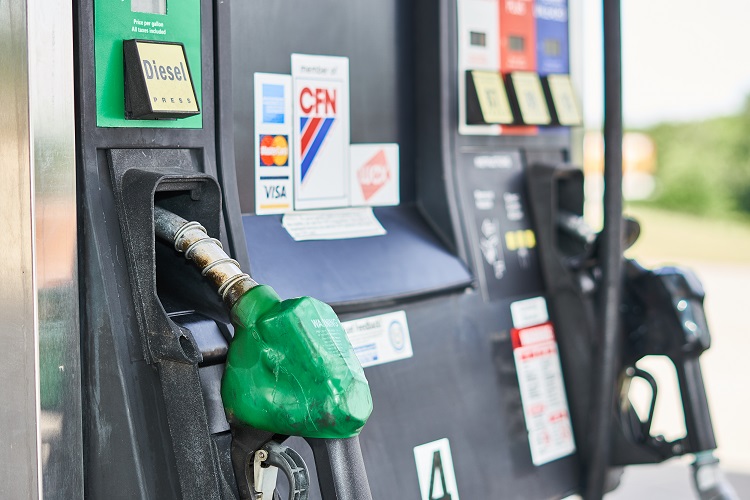More and more companies are turning to business fuel cards as their top choice for handling fleet fuel expenses. These cards offer a secure, flexible, and efficient way to pay for fuel, quickly becoming an essential tool for businesses with mobile workforces. But what makes fuel cards stand out compared to traditional payment methods like cash and credit cards? In this post, we’ll explore the key differences between fuel cards and traditional payment options and highlight why fuel cards are the smarter choice.

### Traditional Fuel Payment Methods: Cash and Credit Cards
#### Flexibility with Limitations
For years, cash and credit cards have been the standard ways to pay for fuel for company vehicles. They give drivers the freedom to refuel wherever it’s most convenient, and their familiarity makes them easy to use. Some businesses even use credit cards to earn rewards like cashback. However, while these traditional methods are flexible, they come with serious downsides that can affect how efficiently a fleet is managed.
#### Drawbacks of Cash and Credit Cards for Fleet Fuel Purchases
- **Vulnerability to Fraud, Theft, and Misuse:** Both cash and credit cards are prone to being stolen or misused. Once cash is taken, it’s gone forever. Although credit cards provide some fraud protection, they don’t offer the customized controls needed to manage fuel spending effectively, leaving room for potential misuse by drivers.
- **Manual Expense Reporting:** With cash, drivers must manually collect receipts, which then need to be entered into the system manually, creating a tedious and error-prone process. Credit cards might offer basic online records, but they don’t capture important mileage data, making it difficult to keep accurate expense records.
- **Lack of Real-Time Insight:** Traditional payment methods often mean there’s a delay between when a fuel purchase is made and when the data is reviewed. This delay can allow inefficient purchasing habits to go unnoticed for months, leading to unnecessary expenses piling up over time.
- **No Options for Performance Monitoring:** Without mileage data, businesses miss out on valuable insights into fuel efficiency and vehicle performance. This lack of information can make it hard to spot maintenance issues early or find ways to optimize fleet operations.
### What Are Fuel Cards?
#### A Purpose-Built Solution
Fuel cards are electronic payment tools designed specifically for buying fuel and maintenance services for company vehicles. They look similar to credit or debit cards but come with extra features tailored to fleet management. To use a fuel card, drivers simply swipe the card at the pump and enter a personal PIN along with the odometer reading. Behind the scenes, business fuel cards offer several advantages over traditional payment methods.
#### How Do Fuel Cards Work?
Fuel cards operate within a private payment network of fuel stations, usually covering over 95% of gas stations across the United States. When a driver makes a fuel purchase, transaction details are automatically uploaded to a web portal in real time. This allows businesses to monitor and manage fuel expenses, generate reports, and oversee card usage through a centralized platform. Drivers can also manage their cards using a mobile app, adding another layer of security and convenience.
### Fuel Cards Benefits
#### Enhanced Security and Control
Fuel cards provide strong tools to protect against fraud and misuse. Businesses can set custom spending limits, restrict transactions to specific geographic areas, and control the time of day purchases can be made. These features greatly reduce the risk of unauthorized spending and help ensure that fuel funds are used properly.
#### Automated Reporting
With business fuel cards, the days of manually collecting receipts and entering data are over. Transaction data is automatically recorded and includes crucial mileage information. This automation ensures accuracy and provides up-to-date expense reports, making administrative tasks easier and simplifying tax reporting.
#### Real-Time Tracking
Fuel cards let businesses track fuel purchases instantly. This immediate access to transaction data allows for quick identification and resolution of fuel use issues, preventing inefficiencies from building up over time.
#### Performance Monitoring
By capturing mileage data, corporate fuel cards give valuable insights into driver behavior, fuel card savings, and vehicle performance. Poor fuel efficiency might signal inefficient driving habits or underlying maintenance problems. With this information, businesses can take proactive steps to improve fleet performance and cut operational costs.
### Why Businesses Should Adopt Fuel Cards
#### Cost Savings
Using corporate fuel cards can lead to significant cost savings. Improved spending controls and performance monitoring help stop misuse and identify areas for improvement, potentially saving hundreds or even thousands of dollars each year.
#### Operational Efficiency
Fuel cards streamline administrative tasks through automated data collection and reporting, freeing up time for more strategic activities. Real-time data access enables proactive management of fuel expenses and fleet performance, further boosting operational efficiency.
#### Risk Reduction
The advanced security features of business fuel cards greatly lower the risks tied to traditional payment methods. Customizable controls and fraud monitoring provide peace of mind and ensure that fuel funds are used correctly.
#### Scalability
Fuel cards work well for businesses of all sizes, from small companies with just a few vehicles to large enterprises with national fleets. Their adaptability makes them a versatile solution for various business needs.
### Conclusion
Fuel cards offer a secure, efficient, and cost-effective alternative to traditional payment methods for managing fleet fuel expenses. With enhanced security features, automated reporting, real-time tracking, and performance monitoring, fuel cards give businesses the tools they need to optimize fleet management and reduce operational costs. If you're looking to improve your company’s fuel expense management, consider switching to fuel cards.
For more information and to see how corporate fuel cards can benefit your business, visit Ricochet Fuel Distributors.
Packing Boxes,Foldable Packing Box,Rectangle Packing Box,Packaging Moving Box
Dalian CS Logistics Technology Co., Ltd , https://www.dlcsem.com